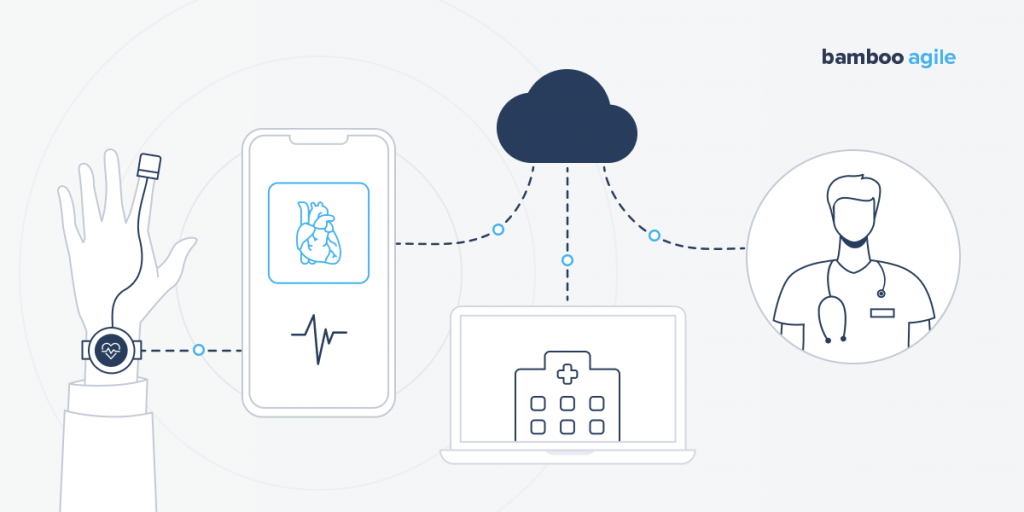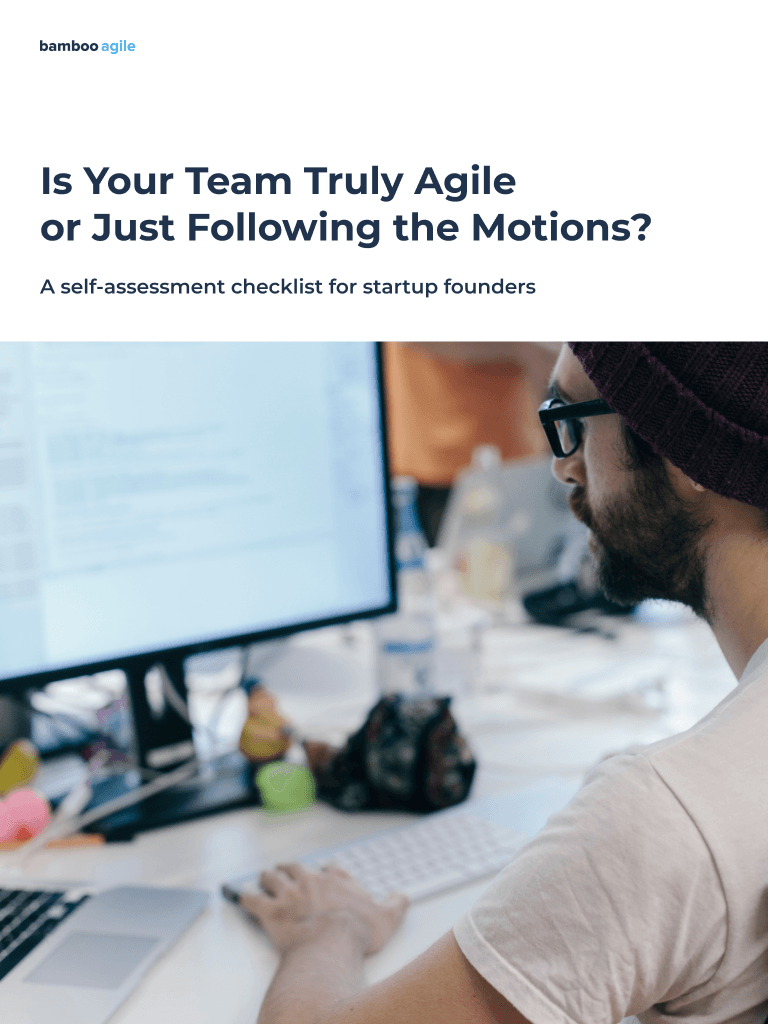Introduction
It’s common knowledge that most – if not all – businesses nowadays rely on IT to optimize their processes and increase profits. Technological integrations are not just an option, but a necessity in the modern world. And the healthcare industry is no exception.
Despite that, healthcare providers are notorious for being conservative when it comes to technology adoption. In an industry where one error can mean the difference between life and death, this kind of careful approach is easy to understand. That said, there are a variety of promising healthcare projects that have already proven their reliability and efficiency in the field – and more and more healthcare providers are starting to see the immense value in employing them.
According to a 2020 HealthTech survey, 48% of healthcare organizations plan to invest in analytics software to boost employee productivity and engagement over the next two years; 61% understand the need to invest heavily in data and analytics technologies, 48% want to increase their investments in mobile apps and 40% – in mobile devices. CB Insights reports that investments in Healthcare hit a worldwide record with $18.1 billion globally in the second quarter of 2020; and most of that capital was drawn by tech startups’ healthcare projects.
So, it’s pretty clear that smart technologies are infiltrating the field at a rapid rate. Let’s take a look at the most promising projects that the healthcare industry has in store.
7 Most Promising Healthcare Projects
1. Telemedicine

Now this is something every healthcare provider and healthcare software development company should be eager to capitalize on. Telemedicine (also known as telehealth or e-medicine) refers to the remote delivery of healthcare services. It essentially allows healthcare providers to evaluate, diagnose, and treat patients without the need for an in-person visit.
The popularity of healthcare projects in telemedicine has been on the rise ever since the start of the coronavirus pandemic. With that in mind, it’s easy to assume that these technologies don’t have much use outside the times of quarantine. But don’t rush to conclusions.
While video conferencing can never fully replace physical visits, the option to conduct virtual appointments is invaluable for those with limited mobility or little time to spare. Furthermore, telemedicine applications can facilitate delivery of medication to both patients and healthcare institutions, which is an immense advantage.
The versatility and convenience that telehealth applications are able to provide makes the technology very attractive for healthcare professionals and patients alike.
2. Electronic health records (EHRs)
Electronic health records contain up to date information on the physical state of all registered patients. As of 2021, their adoption rate has reached its all-time high at around 89%. This basically makes it the most popular technology on this list, as far as healthcare software implementation is concerned. It is impressive, but hardly surprising – for years, EHRs have been an official requirement for getting Medicare financing in the US. But most importantly, they have a number of advantages over paper medical records.
Namely, maintaining and sharing EHRs is much easier than their physical counterparts. Doctors and patients alike can get access to all the medical data when- and wherever they want, and checking for specific details is made even more convenient with various search features and filters. What’s more, the data is safeguarded in accordance with the latest security standards, making it nearly impossible to lose or tamper with.
Another massive advantage of EHRs is their ability to integrate with third-party solutions, such as Apple Healthkit and Google fit. The data from these applications can be directly transferred to the user’s EHR, which keeps the records up-to-date and helps medical professionals easily track the state of the patient’s health. As more and more software is able to integrate with EHRs, the healthcare facilities become more and more effective at constructing more accurate and relevant treatment plans.
3. Cloud Migration

The healthcare industry is known for being very data-heavy. Naturally, healthcare providers seek ways to expand their storage capacity, as well as to make said data more shareable. That’s where cloud technology comes in really handy. The ability to store unlimited information without any additional hardware is not only cost-efficient, but also extremely useful when it comes to application scaling.
This point is particularly relevant when combined with the rapid spread of EHRs. While individual medical records don’t take up a lot of space, ensuring that hundreds or thousands of them are equally well-organized and protected is far easier to do using a cloud-based service, instead of a local storage. There’s no need to purchase a $1000 new physical server when the old one’s storage space runs short – the cloud will expand as much as you need all on its own. Of course, these advantages are applicable to all kinds of healthcare data, not just patient records.
This naturally makes cloud-based healthcare IT projects very popular in the worldwide market. After all, if a New York product owner wants to work with the UK, they’d much rather use a cloud storage account tied to a local data center, than open a British office and look for new server partnerships. In essence, cloud migration is something no modern healthcare software development company can disregard.
4. Advanced Data Security
Having all data conveniently stored in one place is only half the game. That information has to be secured in accordance with HIPAA requirements, and the failure to do so can result in fines up to $1.5 million per year.
In 2014, the healthcare industry received a wake-up call in the form of the CHS Heartbleed attack: around 4.5 million patients had their medical data and social security numbers stolen. The truth is, large amounts of personal information distributed and shared between various providers is extremely tempting for data thieves.
What’s more, while providers are bound by the abovementioned HIPAA regulations, users are far less likely to be as cautious. Regular clients sharing their medical test results via email or even social media open the gates for malicious hackers, all without realizing the kind of danger they might be putting themselves in.
Because of this, some of the most important healthcare projects nowadays have to do with data security. Investing into the development and implementation of new data encryption and authentication methods is a wise choice for any healthcare provider. This doesn’t just concern stored data – information is particularly vulnerable when it’s being transferred. Therefore, it’s essential to safeguard these processes with the latest technologies available.
5. Mobile Technologies

PCs and specialized medical equipment are far from the only devices that have changed the healthcare industry for the better. Healthcare providers can’t afford to disregard mobile technologies, either.
Take Mobile Computer Carts as an example: patients are able to stay connected with their physicians thanks to the ability to access and update the EHRs right at their bedside. This would also make the patient-doctor interactions more efficient, as patients would be actively engaged in reviewing and managing their care, making the experience more personalized.
Of course, it’s impossible to talk about mobile healthcare projects without mentioning remote monitoring and wearable devices. Aside from the obvious benefits of nearly uninterrupted health monitoring, the ability to do so can also reduce the overall time patients have to spend in the hospital, thus giving them more freedom and enhancing the availability of hospital beds.
6. Analytics Automation
Finances are often a painful topic for healthcare providers. Every healthcare facility is constantly looking for ways to reduce costs and, at the same time, not lose out on any service quality. Solving the budget problem without any cuts to the facility’s performance may seem like an impossible task, but that’s where technology makes all the difference.
Data automation healthcare projects strive to help hospitals analyse their extensive documentation more efficiently while saving significant sums of money in the process. Broadly speaking, these algorithms facilitate more accurate predictions, as well as effective allocation of the facility’s resources. But we’re not just talking about healthcare financial software. These tools can be used to analyze test and lab results and assist in constructing personalized patient-care plans.
So, automated analytics don’t simply reduce the amount of time hospital employees spend on paperwork. The tech helps streamline staff management, gives greater control of the healthcare facility’s medical supplies, as well as aids in finding more efficient ways of organizing processes.
According to a Porter Research survey from 2016, 88% of healthcare providers indicate that analytics and business intelligence solutions are extremely or very important in making business decisions. At the same time, 55% of healthcare providers lack adequate data analytics solutions to improve their revenue cycles.
All this indicates that healthcare projects in analytics automation are both efficient and in high demand. In other words, they’re very much worth keeping on the radar.
7. AI Technologies
AI is still considered a fairly new technology in healthcare, but it has already accumulated an impressive track record in all medical fields. Its most popular field of application as of now is radiology, where the tech is used to detect abnormalities and defects that can be easily overlooked by the naked eye – particularly, in medical imaging techniques, which include X-ray radiography, fluoroscopy, and MRIs. This makes AI very reliable when it comes to predicting possible oncoming illnesses way before they show any outside symptoms.
The speed and the ability to work 24/7 all year round without the need for constant control from the radiologist makes AI diagnostics an amazing tool for healthcare facilities with limited resources, especially in case of emergency where every second counts. AI healthcare projects are also actively employed in robot-assisted surgeries, virtual nursing assistants, and fraud detection. They can assist in workflow automation, EHR analysis, and health risk assessment.
With how all-encompassing AI technologies can be in the healthcare industry, you can’t deny their groundbreaking potential. So, if there’s one type of healthcare IT project you cannot overlook, it’s AI-based technology.
Conclusion
The healthcare industry is no longer what it used to be. Healthcare software implementation rates are at an all-time high, and innovative solutions and decisions enter the market on a daily basis. Some automate the extra processes in clinics, some optimize the work of the software that’s already in place (improve its financial efficiency and security, for example), some provide relevant data on global issues (such as Covid-19 diagnostics).
Whether it’s telehealth solutions, EHRs, cloud storage technologies, data security practices, mobile apps and devices, healthcare financial software, automated analytics, or AI, there are plenty of avenues to check out when it comes to envelope-pushing healthcare tech. Now is the time to adapt, to upgrade your medical software with new and more effective applications – unless you want to lose the market competition, that is.
Want to help medical technology achieve new heights? Perhaps, you feel inspired to create a healthcare IT project of your own? Then Bamboo Agile would be glad to help you make that ambitious idea a reality. Fill out this simple form for a free consultation with our specialists to discuss the best way to realize your vision. Let’s revolutionize the healthcare industry together!




